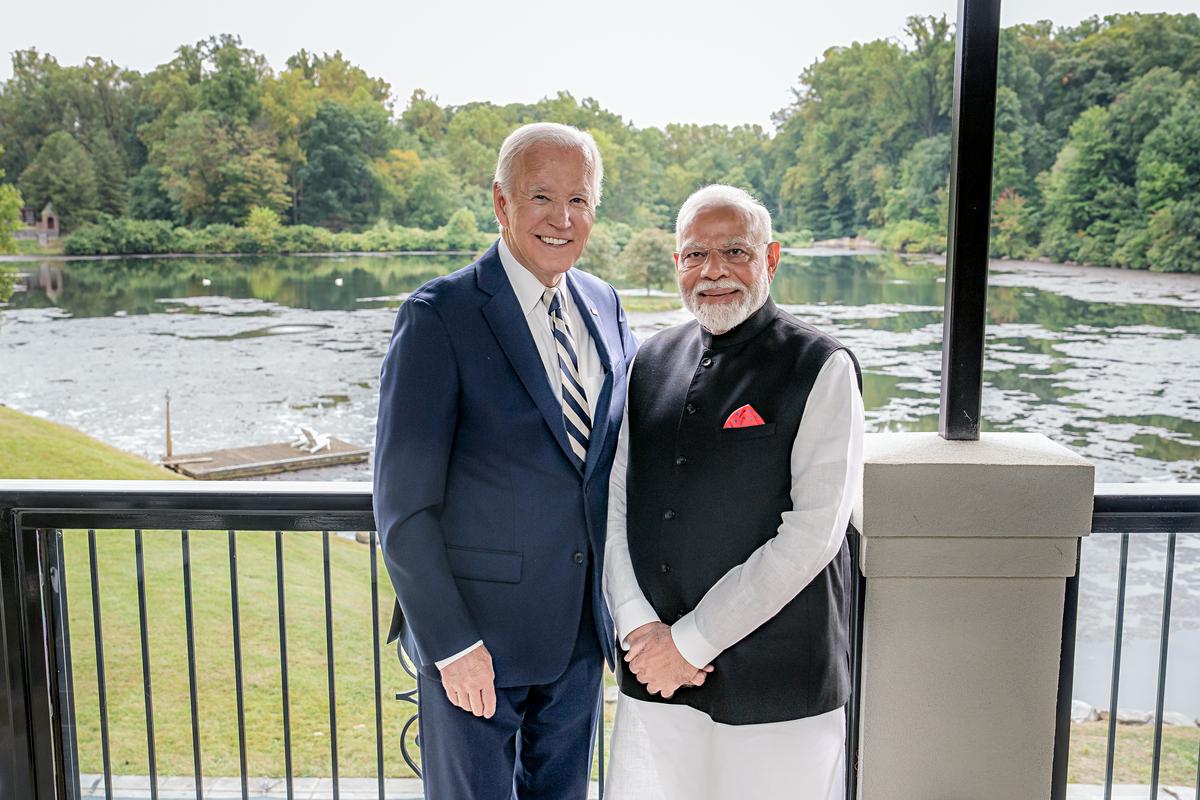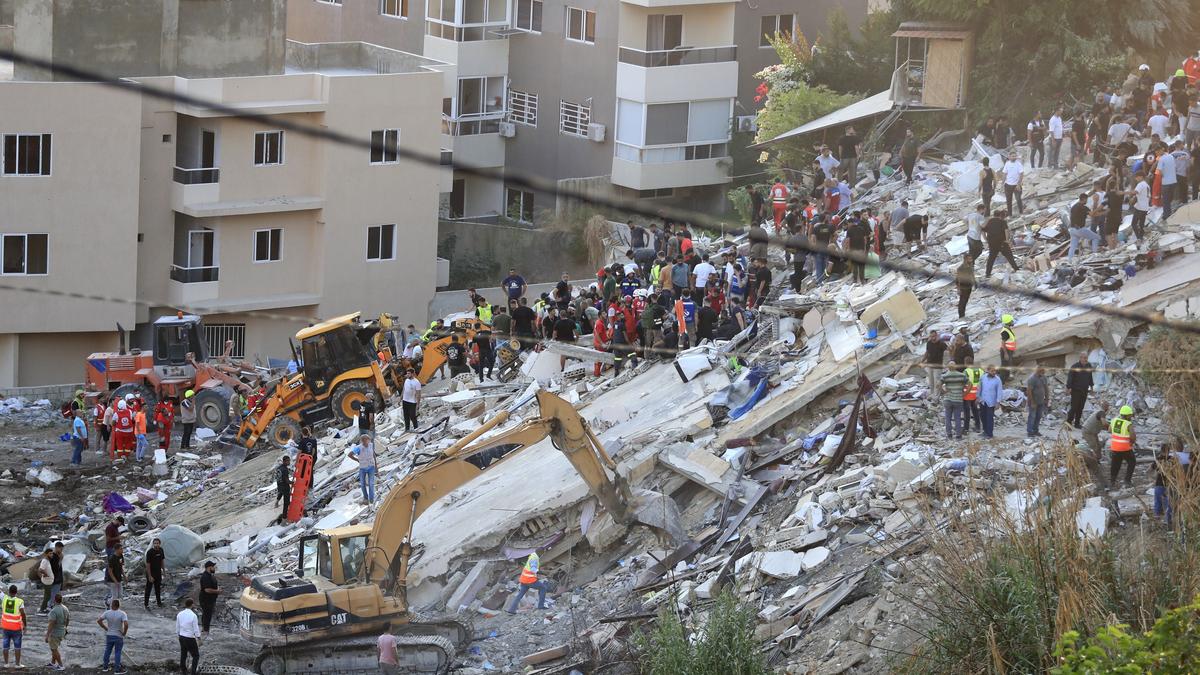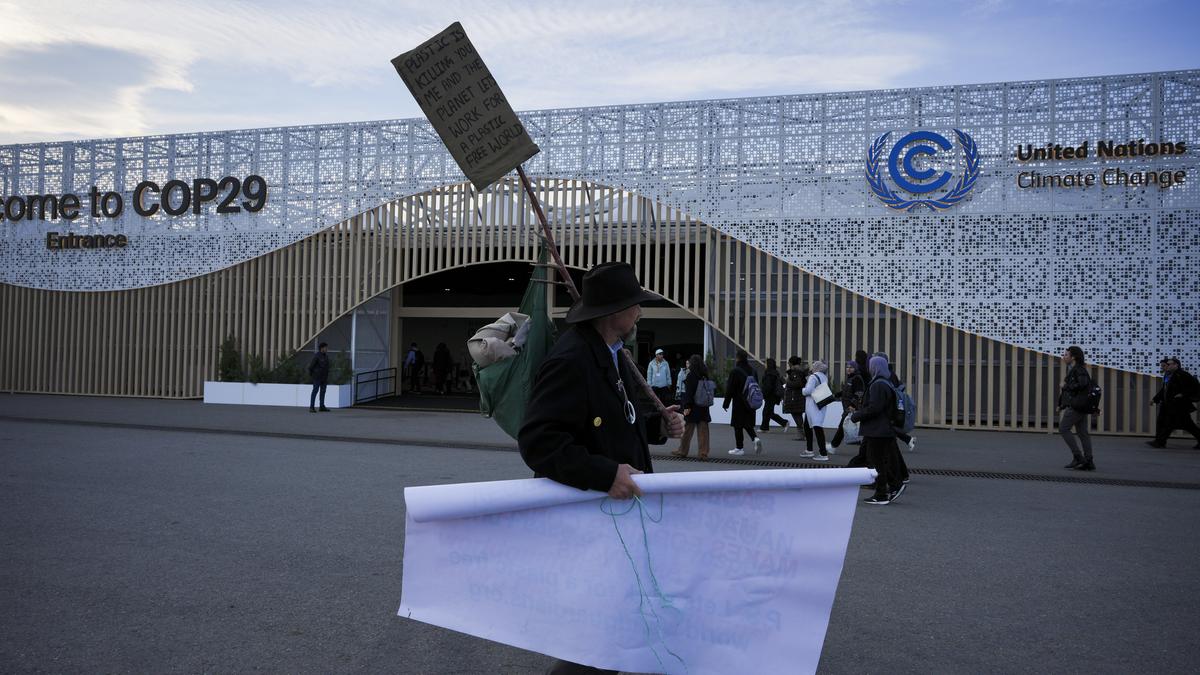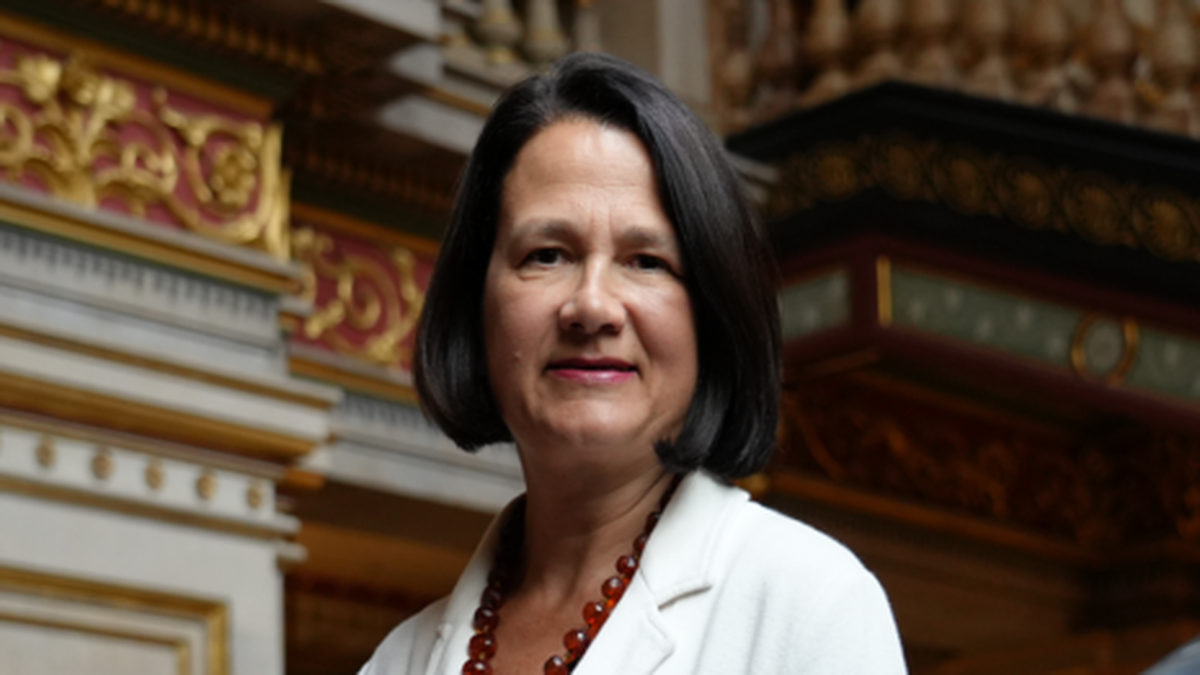(This article is part of the View From India newsletter curated by The Hindu’s foreign affairs experts. To get the newsletter in your inbox every Monday, subscribe here.)
Next week, it will be a year since Israel’s current war on Gaza began. Israeli troops have killed over 40,000 Palestinians in their brutal offensive, but Prime Minister Benjamin Netanyahu’s stubborn persistence with the fight “until meeting its objectives” has pushed West Asia to the edge, with no resolution in sight.
In the latest escalation witnessed last week, Israel carried out massive bombardments across its northern border, in Lebanon, targeting Hezbollah, the country’s powerful Shia militant group. The attacks killed at least 700 people and displaced over 1,00,000 people. Among the dead was Hassan Nasrallah, Secretary-General of Hezbollah. Who is Nasrallah, the cleric who lived and died in war? After taking over its leadership in 1992, Nasrallah transformed Hezbollah from a ragtag guerrilla group into the most powerful non-state actor in West Asia, with political, social and military units. On September 27, by assassinating Mr. Nasrallah, Israel dealt the heaviest blow to Hezbollah and its ally, Iran. Read our Foreign Affairs Editor Stanly Johny’s piece on the leader.
Why is the assassination of the Secretary-General of Hezbollah significant? Why is Israel pounding Lebanon? What is the reason for taking on Hezbollah? What is the status in Gaza? Why is Israel looking beyond its borders? Why is there a scare of the conflict expanding? To place the recent developments in context read this explainer by Stanly Johny. We also have a timeline by Godhashri Srinivasan tracking the Israel-Hezbollah feud that spans over four decades.
In a strong editorial calling Israel a “rogue state with impunity”, The Hindu contended: “A ceasefire in Gaza, which has been overwhelmingly demanded by the international community, would have quietened the northern border. Instead, Mr. Netanyahu, whose troops have killed over 40,000 Palestinians in 11 months in Gaza, has chosen to escalate the war with Hezbollah, killing hundreds more and pushing West Asia to the brink of an all-out war. This bellicosity, callousness and total disregard for international law and norms all bear the hallmarks of a rogue state. A rogue state with impunity.”
India’s role
Despite global calls for a ceasefire, Israel will not stop its airstrikes and operations in Gaza and Lebanon, said Israel’s newly-appointed Ambassador to India Reuven Azar. Further, Israel is pressing India to ban Hamas, end UNRWA funding, he told The Hindu in an interview.
Meanwhile, India has “strongly advised” its nationals to leave Lebanon. An advisory issued by the Embassy of India in Beirut asked Indian citizens to not travel to Lebanon which has been targeted by Israeli bombing raids over the past three days. Official sources have informed that the Government of India is contemplating evacuation of Indian nationals from Lebanon in view of the deteriorating security situation in the country. Kallol Bhattacherjee reports.
How is India impacted by the spread in the conflict? Watch the latest episode of Worldview with Suhasini Haidar here to know.
Modi in the US:

Prime Minister Narendra Modi and US President Joe Biden pose for a picture during a bilateral meeting, at Greenville, in Delaware on Saturday. | Photo Credit: ANI
We tracked Prime Minister Narendra Modi’s visit to the US closely. The three-day visit to the U.S was marked by high-level meetings with a three-part focus. He spent one day at the Quad and in bilateral meetings with U.S. President Joseph Biden, a day in New York with business leaders and the diaspora, and another day at the UN and in bilateral meetings. What were the key takeaways? Our correspondent Sriram Lakshman decodes the visit. Watch here. Also read The Hindu editorial on the visit.
Neighbourhood matters:
Pakistan question: While New Delhi mulls sending External Affairs Minister S. Jaishankar to Pakistan next month to attend the Shanghai Cooperation Organisation (SCO) ‘Heads of Government’ meeting, former High Commissioners told The Hindu that it is important that India participate in the event, separating the failure of bilateral ties from the “value” of the SCO grouping that comprises 10 Eurasian countries, including Russia and China.
Bangladesh recovering? With countrywide incidents of lynching of political activists from the deposed Awami League and growing violence in the Chittagong Hill Tracts, the condition of Bangladesh under Prof. Muhammad Yunus-led interim government has turned ‘clumsy’, said a leading member of the Bangladesh Nationalist Party (BNP) Rumeen Farhana.
Getting to business in Sri Lanka: Newly elected President Anura Kumara Dissanayake on September 24, 2024 appointed MP and former academic Harini Amarasuriya as Sri Lanka’s Prime Minister, as part of a four-member Cabinet under him that will lead policy until the parliamentary elections scheduled on November 14. Sri Lanka will swiftly begin talks with the International Monetary Fund (IMF) to take its ongoing programme forward and expedite negotiations with its external creditors for debt relief, President Dissanayake has said.
Top 5 stories we are reading this week:
1. Plain-speak on the AKD phenomenon in Sri Lanka by Gopalkrishna Gandhi
2. Weighing in on business as usual with China by Ashok K. Kantha
3. Bridging the chasm of global inequality by Mukul Sanwal
4. Taking stock of global nuclear disarmament by Priyanjali Malik
5. Russia’s geopolitical pivot to Asia, a new India chapter by Ivan Shchedrov
Published – September 30, 2024 12:53 pm IST





